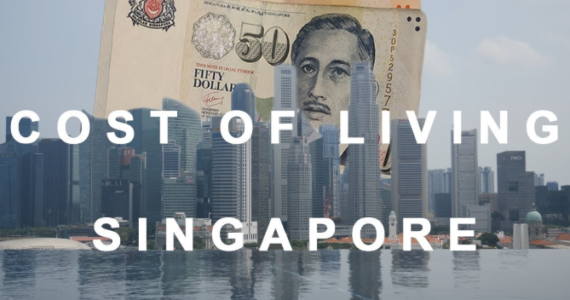As Singapore tops another cost-of-living ranking, residents grapple with rising expenses and the government’s efforts to control the narrative.
SINGAPORE: From debating the best chicken rice stalls to navigating skyrocketing cai png costs, one thing unites Singaporeans: the shared reality of living in an expensive city. Yet, this year’s confirmation by The Economist that Singapore is once again the world’s most expensive city has sparked both acknowledgment and frustration.
According to the Economist Intelligence Unit (EIU), Singapore shares the title with Zurich in its annual Worldwide Cost of Living survey, which analyzes prices across 173 major cities. The basket of goods ranges from daily essentials like food and utilities to luxury items such as private schooling and branded clothing.
This marks the ninth time in 11 years that Singapore has claimed the top spot. The EIU’s findings place it above cities like New York (3rd) and Hong Kong (5th), further cementing its reputation as a costly urban hub.
A Government Rebuttal
The Ministry of Trade and Industry (MTI) was quick to counter the survey’s findings, asserting that it does not accurately reflect Singaporeans’ cost of living. The MTI outlined three key points:
The survey targets expatriates and business travelers, not locals.
The consumer basket includes items irrelevant to average Singaporeans, such as branded goods.
Exchange rates influence the ranking, skewing results for Singapore.
While the MTI detailed various government measures to address rising costs, their defensive tone sparked skepticism. Some residents questioned why the government felt compelled to critique a survey that has consistently ranked Singapore as expensive—a reality many already feel daily.
The Cost of Reality
Critics argue that quibbling over methodology misses the point. For the average Singaporean, the rising costs of everyday life are undeniable. From climbing food prices to higher transportation and utility bills, financial pressure is a persistent concern.
Recent studies, such as the 2023 Minimum Income Study, underscore these struggles, detailing the income required for a basic standard of living. Yet even this study faced government pushback, highlighting a disconnect between official narratives and public sentiment.
The Frustration of Semantics
Reactions to the MTI’s response ranged from disdain to outright disbelief. On Reddit, users accused the government of “gaslighting,” while others ridiculed the focus on technicalities over real-life challenges.
The backlash reveals a deeper frustration: Singaporeans feel their concerns are being minimized. While the government’s points may hold merit, they do little to address the tangible strain felt by residents navigating rising costs.
Moving Beyond the Debate
For many, the debate over whether Singapore is the “most expensive” city is moot. The more pressing question is what steps can be taken to ease the financial burdens on everyday citizens.
Singaporeans don’t need surveys to confirm their reality. Whether it’s the cost of a $2 kopi or rising utility bills, the challenges of affording life in this city are clear.
Rather than defensiveness, Singaporeans are looking for acknowledgment and action. Recognizing the reality of high costs—without caveats—could pave the way for meaningful solutions.
Yes, Singapore is expensive. Now, what’s the plan to ensure residents can thrive, not just survive?








